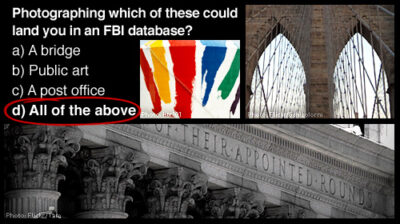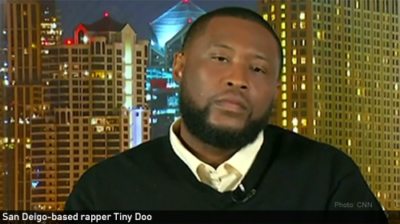Ideological Exclusion
The ACLU works in courts, legislatures, and communities to defend and preserve the individual rights and liberties that the Constitution and the laws of the United States guarantee everyone in this country.

The Latest
Explore More
What's at Stake
The U.S. Supreme Court has long recognized that Americans’ right to receive ideas is a necessary predicate to our meaningful exercise of the rights of speech and political and press freedom. When the government seeks to use immigration laws against foreign speakers to control Americans’ access to ideas and speech, those laws can easily become tools of government censorship.
“Ideological exclusion” is the name of a government policy that keeps Americans from meeting with foreign speakers whose opinions the government dislikes. It has long been discredited, but still occasionally persists. It was used as a political tool during the Cold War, when the U.S. State Department sought to deny visas to some of the world’s leading writers and artists who, the government thought, might be sympathetic to communism or other “subversive” viewpoints. The list of those excluded during the Cold War includes Nobel laureates such as Gabriel GarcĂa Márquez and Pablo Neruda.Â
Although Congress eventually rejected ideological exclusion, the government has occasionally still tried to censor speech by keeping disfavored foreign speakers out. Republican and Democratic administrations alike have denied visas to critics of their policies, often asserting that the foreign speaker is being excluded because he or she poses risks to our national security.Â
The ACLU uses litigation and advocacy to ensure that the government does not censor speech and ideas by barring foreign speakers. Our work protects Americans’ rights to receive ideas and meet with people from around the world, even—and especially—when those people disagree with the U.S. government’s favored viewpoints.
The U.S. Supreme Court has long recognized that Americans’ right to receive ideas is a necessary predicate to our meaningful exercise of the rights of speech and political and press freedom. When the government seeks to use immigration laws against foreign speakers to control Americans’ access to ideas and speech, those laws can easily become tools of government censorship.
“Ideological exclusion” is the name of a government policy that keeps Americans from meeting with foreign speakers whose opinions the government dislikes. It has long been discredited, but still occasionally persists. It was used as a political tool during the Cold War, when the U.S. State Department sought to deny visas to some of the world’s leading writers and artists who, the government thought, might be sympathetic to communism or other “subversive” viewpoints. The list of those excluded during the Cold War includes Nobel laureates such as Gabriel GarcĂa Márquez and Pablo Neruda.Â
Although Congress eventually rejected ideological exclusion, the government has occasionally still tried to censor speech by keeping disfavored foreign speakers out. Republican and Democratic administrations alike have denied visas to critics of their policies, often asserting that the foreign speaker is being excluded because he or she poses risks to our national security.Â
The ACLU uses litigation and advocacy to ensure that the government does not censor speech and ideas by barring foreign speakers. Our work protects Americans’ rights to receive ideas and meet with people from around the world, even—and especially—when those people disagree with the U.S. government’s favored viewpoints.




